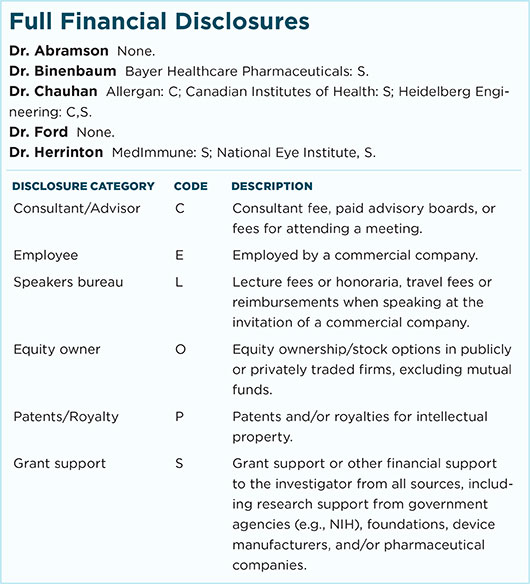Download PDF
Routine retinopathy screening of all children with type 1 diabetes may not be necessary before the mid-teenage years, according to a pediatric ophthalmology research group at the Children’s Hospital of Philadelphia and the Scheie Eye Institute.1
Moreover, the researchers suggested that revision of clinical guidelines for the ophthalmic care of these children should be considered in light of these findings. They noted that this might reduce financial and logistic burdens on families and allow better use of pediatric health care resources.
Onset of diabetic retinopathy. In their 2-pronged study, the researchers first performed a retrospective consecutive cohort analysis of the records of all diabetic children who received a complete dilated eye exam at the hospital’s eye clinic during a 4-year period. They also reviewed the published literature about ocular complications of juvenile diabetes. Respectively, the 2 arms of the study showed that:
- None of the 370 children (mean age, 11.2 years; range, 1.0-17.5 years) developed retinopathy; other ocular conditions, such as cataract, presented based upon symptoms and not on retinopathy screening.
- The youngest age reported for a diagnosis of severe diabetic retinopathy was 15, and the shortest duration of diabetes before diagnosis of retinopathy was 5 years.
Controversial—or not? Those findings confirmed the clinical impressions that the pediatric ophthalmologists in the group had before undertaking the research, said Gil Binenbaum, MD, MSCE, a coauthor. “Based on their own experiences, I think the majority of ophthalmologists who examine children are likely to agree with us and not find these conclusions controversial,” said Dr. Binenbaum, who is an assistant professor of ophthalmology at the University of Pennsylvania.
Diabetes specialists had a similar response, he said. “When I spoke to some endocrinologists about this, I was anticipating that they would not be comfortable with us not examining children until they’re quite a bit older, but their reaction was generally positive,” Dr. Binenbaum said.
—Linda Roach
___________________________
1 Geloneck MM et al. Ophthalmology. 2015;122(12):2459-2466.
___________________________
Relevant financial interests—Dr. Binenbaum: Bayer Healthcare Pharmaceuticals: S.
For full disclosures and disclosure key, see below.

More from this month’s News in Review